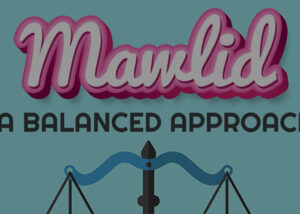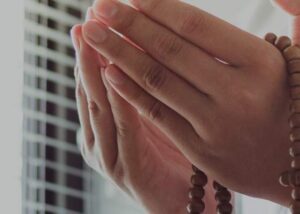Some people have said that you should not say Ma sha Allah when you see something good or impressive, rather you say Barak Allah. Is this correct?
Quran
Hadith
Islamic Text
You can say either Ma sha Allah or Barak Allah Feek when you see something positive or impressive. You can also say other things similar to these two phrases.
وَلَوْلَا إِذْ دَخَلْتَ جَنَّتَكَ قُلْتَ مَا شَاءَ اللَّهُ لَا قُوَّةَ إِلَّا بِاللَّهِ
If only you had said, upon entering your land, ‘What Allah Wills (Ma sha Allah), there is no power except with Allah.’ (Surah al-Kahf, 39).
The Ayah above speaks of saying ‘Ma sha Allah’ when observing something positive, impressive or a blessing of Allah (Most High). The context is that of protecting wealth from calamities. This is one of several options. In the Hadith below will see the option of invoking blessings (Barakah) in a similar situation.
عَنْ أَبِي أُمَامَةَ بْنِ سَهْلِ بْنِ حُنَيْفٍ، أَنَّ أَبَاهُ حَدَّثَهُ: أَنَّ رَسُولَ اللهِ صَلَّى اللهُ عَلَيْهِ وَسَلَّمَ خَرَجَ، وَسَارُوا مَعَهُ نَحْوَ مَكَّةَ، حَتَّى إِذَا كَانُوا بِشِعْبِ الْخَزَّارِ مِنَ الْجُحْفَةِ، اغْتَسَلَ سَهْلُ بْنُ حُنَيْفٍ وَكَانَ رَجُلًا أَبْيَضَ، حَسَنَ الْجِسْمِ، وَالْجِلْدِ، فَنَظَرَ إِلَيْهِ عَامِرُ بْنُ رَبِيعَةَ أَخُو بَنِي عَدِيِّ بْنِ كَعْبٍ وَهُوَ يَغْتَسِلُ، فَقَالَ: مَا رَأَيْتُ كَالْيَوْمِ، وَلَا جِلْدَ مُخَبَّأَةٍ فَلُبِطَ بِسَهْلٌ، فَأُتِيَ رَسُولُ اللهِ صَلَّى اللهُ عَلَيْهِ وَسَلَّمَ، فَقِيلَ لَهُ: يَا رَسُولَ اللهِ، هَلْ لَكَ فِي سَهْلٍ؟ وَاللهِ مَا يَرْفَعُ رَأْسَهُ، وَمَا يُفِيقُ، قَالَ: ” هَلْ تَتَّهِمُونَ فِيهِ مِنْ أَحَدٍ؟“ قَالُوا: نَظَرَ إِلَيْهِ عَامِرُ بْنُ رَبِيعَةَ فَدَعَا رَسُولُ اللهِ صَلَّى اللهُ عَلَيْهِ وَسَلَّمَ عَامِرًا، فَتَغَيَّظَ عَلَيْهِ وَقَالَ: ” عَلَامَ يَقْتُلُ أَحَدُكُمْ أَخَاهُ؟ هَلَّا إِذَا رَأَيْتَ مَا يُعْجِبُكَ بَرَّكْتَ؟ “ ثُمَّ قَالَ لَهُ: ” اغْتَسِلْ لَهُ ” فَغَسَلَ وَجْهَهُ، وَيَدَيْهِ، وَمِرْفَقَيْهِ، وَرُكْبَتَيْهِ، وَأَطْرَافَ رِجْلَيْهِ، وَدَاخِلَةَ إِزَارِهِ فِي قَدَحٍ، ثُمَّ صُبَّ ذَلِكَ الْمَاءُ عَلَيْهِ، يَصُبُّهُ رَجُلٌ عَلَى رَأْسِهِ، وَظَهْرِهِ مِنْ خَلْفِهِ، يُكْفِئُ الْقَدَحَ وَرَاءَهُ، فَفَعَلَ بِهِ ذَلِكَ، فَرَاحَ سَهْلٌ مَعَ النَّاسِ لَيْسَ بِهِ بَأْسٌ
Abi Umamah ibn Sahl ibn Hunayf heard his father say, “The Prophet ﷺ travelled in the direction of Makkah and the people went with him. When they reached the Kharaz valley in Juhfah Sahl ibn Hunayf performed Ghusl, Sahl was a fair skinned man with beautiful skin. Amir bin Rabia of the Bani Adi bin Ka’b looked at him and said ‘I have never seen anything like what I have seen today, not even the skin of a virgin.’ Sahl fell ill on the spot. Somebody went to the Messenger of Allah ﷺ and said, ’O Messenger of Allah ﷺ can you help Sahl? He cannot lift his head and he is (often) unconscious.’ The Messenger of Allah ﷺ asked about him and was informed that Amir bin Rabia had looked at him. The Messenger of Allah ﷺ called Amir and rebuked him saying, ‘Why does one of you kill his brother? When you see something impressive why do you not say May you be blessed.’ Then he ﷺ said, ‘Wash for him.’ So he washed his face, hands, elbows, knees, his toes and the inside of his Izaar (loincloth) and collected the water in a container. Then that water was pored over him, over his head and back, emptying the container. Sahl then travelled with the people and there was nothing wrong with him.” (Ahmad 15980, Sahih).
As we see from the Quranic verse and Prophetic Hadith there are a number of options with regards to what one can say when encountering a blessing.
And Allah Most High Knows Best.
-Answered by Shaykh Noorud-deen Rashid (06.09.2022)
See also:
All Hadith in Bukhari and Muslim are Sahih.
See also video:






